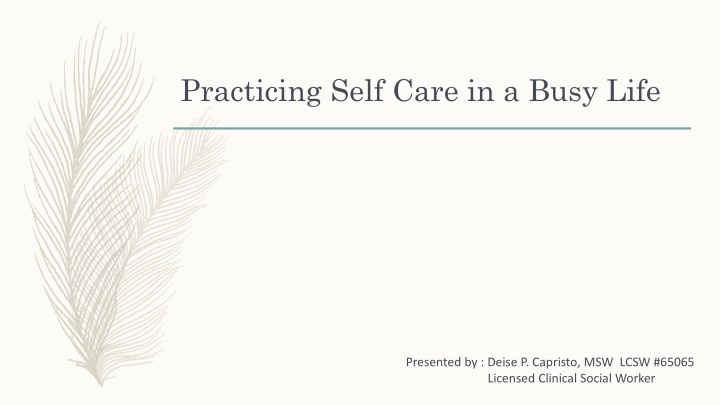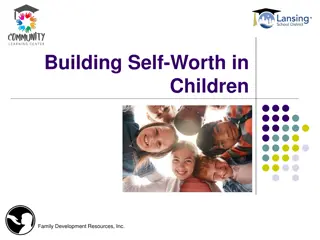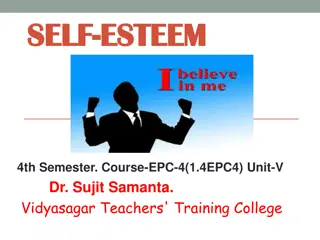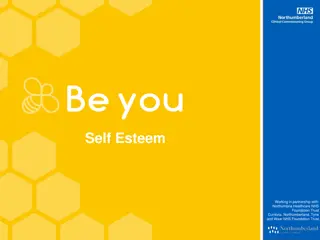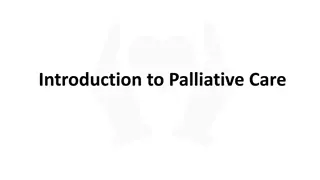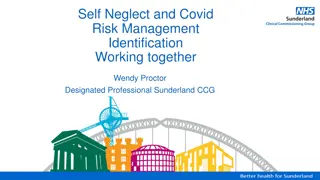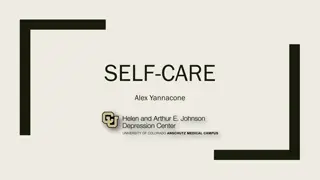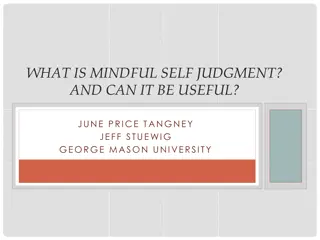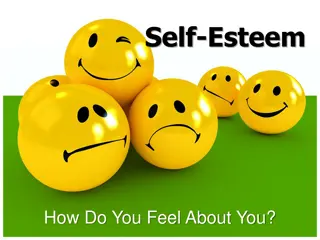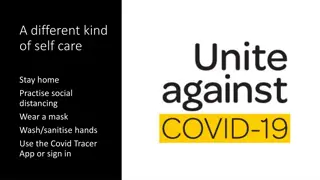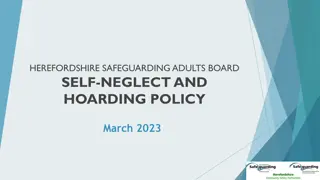Prioritizing Self-Care in a Hectic Life: Expert Tips and Strategies for Wellness
In this insightful presentation by Deise P. Capristo, MSW, LCSW, learn about the different types of stress, symptoms of burnout, and the importance of self-care. Discover the impact of stress on your well-being, identify warning signs, and develop a personalized self-care plan to improve your overall health and happiness. Remember, self-care is not selfish; it is a necessary investment in your own well-being.
Download Presentation

Please find below an Image/Link to download the presentation.
The content on the website is provided AS IS for your information and personal use only. It may not be sold, licensed, or shared on other websites without obtaining consent from the author.If you encounter any issues during the download, it is possible that the publisher has removed the file from their server.
You are allowed to download the files provided on this website for personal or commercial use, subject to the condition that they are used lawfully. All files are the property of their respective owners.
The content on the website is provided AS IS for your information and personal use only. It may not be sold, licensed, or shared on other websites without obtaining consent from the author.
E N D
Presentation Transcript
Practicing Self Care in a Busy Life Presented by : Deise P. Capristo, MSW LCSW #65065 Licensed Clinical Social Worker
Learning Objectives Learn meaning of stress and burnout and its impact Identify symptoms of stress and burnout Learn the meaning of SELF-CARE Improve self awareness Develop your own self care plan
Types of Stress Acute Stress Caused by daily demands and pressures that occur over a short period of time. This type of stress is also the type that can bring out excitement, joy, and thrill as well. Episodic Stress A type of acute stress that occurs too frequently in people who set unrealistic demands and get easily overwhelmed in their attempts to meet set goals. This type of stress ceases from time to time. More common in Type A Personality traits. Chronic Stress Long term exposure to stressors such as violence, unhappy marriages, relationship conflicts, chronic illnesses, political problems, dysfunctional families, and sentiment of unfulfilled careers.
Symptoms of Stress Emotional Symptoms Physical Symptoms Headaches Anger Irritability Anxiety Crying spells Acute periods of depression Stomachaches Difficulty breathing Hypertension Bowel Distress
Burnout Prolonged state of emotional, physical, and mental exhaustion caused by excessive untreated stress. Symptoms include: motivation decreases Feelings of hopeless and helplessness Increase sense of resentment.
Stress vs. Burnout Burnout Stress Characterized by disengagement Characterized by over-engagement Emotions are flat Emotions are over-reactive Produces helplessness and hopelessness Produces urgency and hyperactivity Loss of motivation, ideals, and hopes Loss of energy Leads to detachment and depression Leads to Anxiety disorder Primary damage is emotional Primary damage is physical
Its not selfish to love yourself, take care of yourself and to make happiness a priority. It s necessary. -Mandy Hale
What is Self-Care? The act of caring for one self through various tiny habits, which together are soothing and brings one self to our optimal self; emotionally, mentally, physically and spiritually.
Types of Self-Care Emotional / Mental Identifying, understanding, and nurturing your feelings, your conscious inner state, and your intellect. Physical Identifying, understanding, nurturing, and maintaining the health of your body. Spiritual Any activity that nurtures the soul and your sense of connection to a higher power and or provides you with a deeper meaning to life.
Prevention and Coping Skills Balance of self and other s interest Setting appropriate professional and personal boundaries Events I can , and can not attend How late can I work or not work Having the ability to say no Having the ability to say yes Self-awareness / Self-regulation Emotional / Mental needs Physical & Spiritual needs Make necessary changes to ensure awareness
Prevention and Coping Skills Engage in activities that rejuvenates your energy, spirit, and or physical health at least 1x/week or more Exercise Mindfulness Yoga Prayer Therapy Journal Writing Build a supportive community / environment: Wellness committee Join a gym / fitness team All staff retreats / team retreats Set up a buddy system
Radical self-care is what we ve been longing for, desperate for, our entire lives-friendship with our own hearts. -Anne Lamott
Personal and Professional Self-Care Plan Identify an activity you will engage in on a regular basis one to three times a week Identify an activity you will engage your staff at least once a year Identify an activity you will engage yourself and staff at least once a week at your work place Identify a person that will help you keep committed to your self care plan
References Ellen Bard (September 2016). Self-Care Practices. Retrieved Sept 23 from tinybuddah.com: http://tinybuddah.com/blog/45-simple-self-care-practices-for-a-healthy-mind-body-and-soul/ Cynthia Athina Kemp Scherer (September 2016). Emotional Self Care. Retrieved Sept 23 from Desert-Alchemy.com: https://www.desert-alchemy.com/article/emotional-self-care/ Melinda Smith, M.A., Jeanne Segal, Ph.D., and Robert Segal, M.A. (August 2015). Preventing Burnout. Retrieved Aug 25 from helpguide.org: http://www.helpguide.org/articles/stress/preventing-burnout.htm Sarah Mae Sincero (Sep 10, 2012). Three Different Kinds of Stress. Retrieved Aug 27, 2015 from Explorable.com: https://explorable.com/three-different-kinds-of-stress www.tulane.edu : tulane.edu/health/wellness/upload/MBSR-Workbook.pdf
